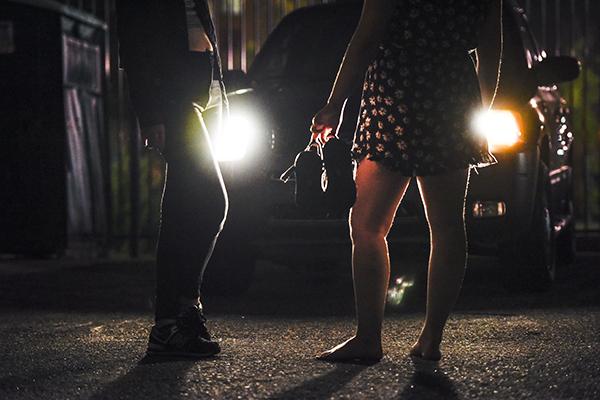The D.C. Council member who represents Foggy Bottom said his efforts to deter prostitution in the area have been working.
Since July 14, officers in the Metropolitan Police Department’s human trafficking unit arrested roughly 370 people trying to solicit prostitutes in the city under Ward 2 Council member Jack Evans’ initiative, an MPD spokeswoman said. But advocates who aim to protect workers in the sex industry criticized Evans’ hard-handed approach, saying it is unsupportive to the sex workers who may need help.
Evans said over the summer that he would push police to arrest them men who solicit prostitution in D.C., saying that residents have been complaining to him about the issue in areas like Logan Circle, which is in the same ward as Foggy Bottom.
In an interview last week, Evans described his approach, which he hopes will eliminate the demand for prostitution in the city, as effective. He added that he hasn’t heard any recent complaints.
“We’re not seeing the scantily clad women on the streets anymore,” Evans said. “My idea of arresting the Johns, and more importantly, publicizing that we are arresting the Johns, has worked.”
In July, Evans also introduced legislation called “Honey, I lost the car” in the D.C. Council, which would require MPD officers to tow a person’s car if the officer has probable cause that the owner solicited a prostitute, the second time he tried to pass a version of the law.
Evans said in a July interview that solicitors were coming to D.C. from Virginia and Maryland because it’s the “city of least resistance” for what he called a regional issue. He said he started the initiative to create an embarrassing inconvenience for those solicitors and scare them away from approaching prostitutes.
Evans added that the peak time of year for prostitution is between April and November, and that he typically expects cases of prostitution to decrease during the fall. He said he wants to continue the strict enforcement when the weather warms up again in the spring.
“We’ll have to really hit it strong when it comes back again in April,” Evans said.
Kiefer Paterson, a client care coordinator at HIPS, a D.C.-based organization focused on providing services to people involved with drug use or in the sex industry, said in an interview that Evans’ use of law enforcement as a strategy to reduce prostitution is the “wrong approach.”
“While it’s nice to say that we’re not arresting the women themselves, ultimately criminalizing the purchase of sex pushes sex workers away from resources,” Paterson said.
Paterson said officials should increase the amount of money they spend to deter prostitution, just like they have increased funding to stop homelessness. As part of Mayor Muriel Bowser’s pledge to end family homelessness by 2018, she added nearly $23 million in additional funding towards homelessness.
A larger budget could help expand social services for women in the sex industry – which Paterson said should be prioritized over simply arresting the men who run the business. Prostitution is mentioned in D.C.’s current budget as falling under the jurisdiction of the Metropolitan Police Department, but no line items directly addressing the issue are included.
Paterson said in an email that his organization has requested a hearing with the D.C. Council’s Judiciary Committee to discuss the group’s opposition to using law enforcement when dealing with prostitution.
Officials in some states like Arizona and Minnesota have created programs called “John schools” as part of the disciplinary programming for men who are caught trying to solicit prostitutes. The programs aim to educate the men about how engaging in prostitution can be harmful to women and change their attitudes toward the sex industry.
Julia Tindell, the volunteer coordinator at Breaking Free, an organization that aims to end prostitution, said education through John schools and policies aimed towards deterrence are the most important aspects in addressing the demand for prostitution.
“By the end, the men have changed their perspective on prostitution,” Tindell said.
Katherine Koster, the communications director for the Sex Workers Outreach Program, said enforcing prostitution laws drives prostitutes to more dangerous neighborhoods, which could make them more “vulnerable to violence and harassment.”
“Every time you displace this stuff you disrupt social support networks and safety networks,” Koster said. “Communities should be having conversations with the people they believe are causing neighborhood nuisances rather than calling the cops.”
Koster said law enforcement officials should direct their attention to bigger nuisances in the community than local prostitutes, like college students.
“College students, especially those that drink, can diminish the quality of life,” she said.
Robin Eberhardt contributed reporting.







